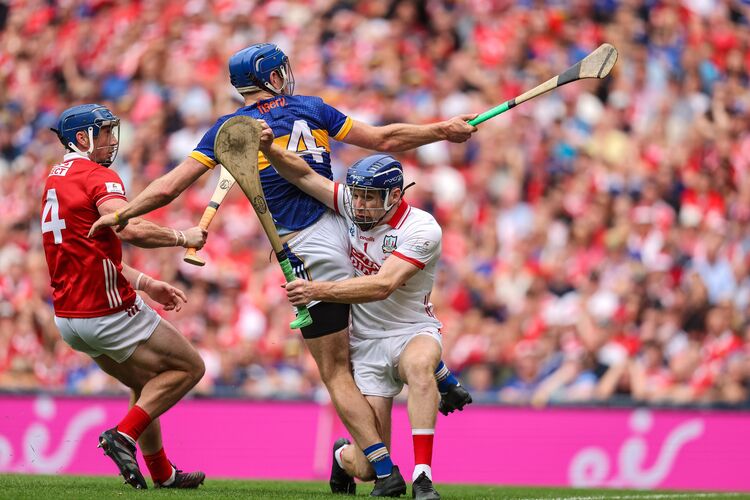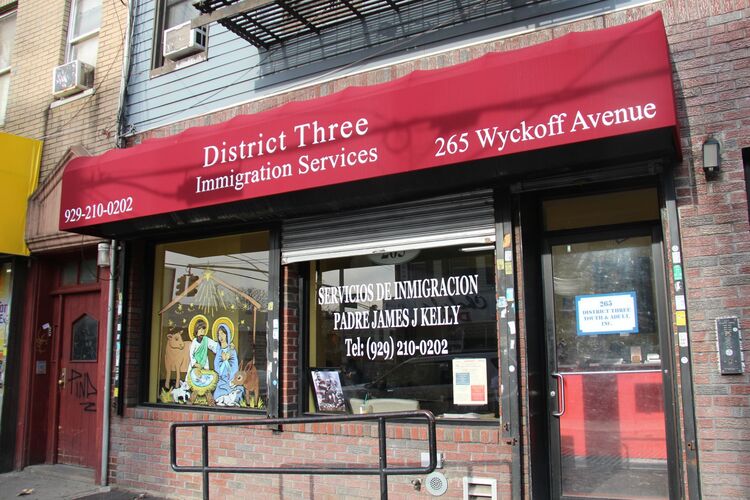[caption id="attachment_66933" align="aligncenter" width="600" caption="Ironworkers Local 40 makes its presence felt at Ground Zero. PHOTO BY PETER MCDERMOTT "]
By Peter McDermott
On July 12, 1917, the Bisbee Citizens' Protective League swung into action. They were a group of vigilantes deputized by that Arizona town's sheriff, who in turn was acting on the suggestion of Walter Douglas and James Douglas Jr., the copper barons who owned Phelps Dodge. The brothers didn't take too kindly to the Industrial Workers of the World, AKA the Wobblies, organizing on their home turf. After the workers refused to expel organizers at the insistence of management, the Bisbee Citizens' Protective League rounded up 1,300 strikers and sympathizers and held them downtown at gunpoint.
Historian Adam Cohen writes: "When a train owned by Phelps Dodge pulled up, the prisoners were forced into 23 boxcars and taken to the New Mexico desert, where they were abandoned without food or water."*
Word only got out when a union lawyer issued a press release. President Wilson then sent troops to rescue the stranded men.
One reason this is remembered today is that 16 years later, James's son Lewis Douglas was appointed President Roosevelt's conservative budget director (he was well to the right of liberal Republicans, some of whom would later rue FDR's failure to nationalize the banks as a lost opportunity).
I wonder, though, if this story has survived through the generations in the families of those men? Or, indeed, if millions of smaller labor stories have been lost over time?
I was of voting age before I learned that my maternal grandfather, whom I never knew, had been jailed and served time following a picket line incident in 1930s Dublin. It was relayed almost as a humorous episode in an eventful life; it was stressed, too, that he was innocent of the charges, which involved an alleged attack on management property. Only recently, my uncle pointed out to me that a prison record and a history of union militancy were likely serious marks against him in the perennially difficult job market in Ireland. (He remained committed, though. My uncle has his father's last five union cards, which show he paid his dues through the last week of his life in 1958.)
But that's just a gap of two generations. What about young people today? Are they aware of what their ancestors did 100 years ago? It doesn't help that there are people who'd rather we didn't value those who stood on picket lines with empty stomachs.
John Stossel, the one-time ABC reporter now with Fox News, has insisted that it wasn't labor's struggles that brought us the weekend, as many from the current U.S. president on down have argued. It was the free market.
John L. Lewis, the legendary miners' leader, would have laughed Stossel out of his office; while Mike Quill of the TWU would have denounced this "libertarianism" for what it was: corporate class warfare.
It's interesting that if you want Stossel to speak at an event to share his views on this and other matters you can't just call him up. Instead, you must contact Grabow, an agency that specializes in corporate events. I presume he has another agent to negotiate his TV contract and one maybe for his publishing sideline. Stossel would be right to want to get the right deal, to have his rights protected and to have the fine details worked out by professionals. He doesn't have time for all that paperwork I'm sure.
However, I think workers, likewise, have the right to be represented by their agents: the UFT, the SEIU, the Teamsters, the IBEW , the LIUNA, the IUOE and the rest.
Unions aren't perfect; nor are agents. Nobody said they were. They're always going to be the focus of a certain love-hate relationship. Groucho Marx quipped sarcastically: "I wish to be cremated. One tenth of my ashes shall be given to my agent, as written in our contract."
But if sports and TV stars, after-dinner speakers and thriller writers can have agents, why can't working people have folks in their corner looking out for them?
Well you know why. And it's the same reason for the continual depiction in 2011 of union leaders and activists as thugs.
Ahead of the President Obama's speech at the recent Labor Day rally in Detroit, Teamsters' leader James P. Hoffa ended his warm-up speech with a message about next year's elections: "Everybody here's got to vote. If we go back and we keep the eye on the prize, let's take these [SOBs] out and give America back to America where we belong! Thank you very much!"
Fox News broadcast a report with this snippet shortly afterwards, but 20 minutes later edited out the first sentence. The second version was then distributed to other conservative outlets. Sarah Palin later referred to Hoffa's "thuggery," but Rush Limbaugh went a step further saying: "That's a call to violence, folks!" Glenn Beck weighed in the same vein, alleging that the union leader was "inciting violence."
While Hoffa's language wasn't particularly civil, the context was clear. Yet, some prominent conservative bloggers suggested that he'd just stopped short of asking for the death of Tea Party leaders. Two days later, the New York Post ran an editorial with the headline: "Next, a Kneecapping?" It opened: "When Jimmy Hoffa threatens to take you out, should you be worried?" There was no mention of the sentence calling on people to vote.
The real incitement was by Fox News, courtesy of its malicious editing. It was a maneuver worthy of Pravda in the old Soviet Union or Iranian state television today. And it was terribly irresponsible, too, given the long history of reactionary violence against labor at home and abroad -- including by the fascist movements of Europe. I don't believe that right-wing authoritarianism is on our horizon, but there are those "lock and load" elements out there, some of which mightn't need much to set them off.
One antidote to all of this would be to ensure that younger people know more about the history of the movement. They should hear, for instance, about the women and girls who organized in New York's garment industry in the early 20th century, including the 146 who died on March 25, 1911; the members of the United Auto Workers who stood up to Pinkerton thugs in Michigan in the 1930s; and about those who campaigned for labor justice, such as Dorothy Day, of the Catholic Worker Movement, and the Jesuit John M. "Pete" Corridan, AKA the Waterfront priest.
Times may have changed; organized labor may not be quite as central as it once was, alas, but that's no excuse for forgetting its heroic struggles and its key contribution to the quality of life in this country.
* Nothing to Fear: FDR's Inner Circle and the Hundred Days That Created Modern America, by Adam Cohen.







